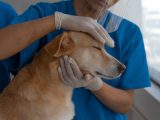
Veterinary Lab Tests Decoded: Unraveling the Mystery of Your Pet’s Health
June 20, 2023As pet owners, we always want the best for our furry friends, but sometimes it’s challenging to understand what’s going on with their health. That’s where veterinary lab tests come in! These tests are essential tools for diagnosing and monitoring various health issues in pets. In this article, we will break down the most common veterinary lab tests and their purposes, to help you better understand how these essential diagnostics can contribute to your pet’s overall health and wellbeing.
Common Veterinary Lab Tests and Their Importance
Complete Blood Count (CBC)
A Complete Blood Count (CBC) is one of the most common lab tests performed on pets. It measures the number and types of red and white blood cells in a blood sample, providing valuable information about your pet’s overall health. A CBC can detect issues like anemia, infections, and inflammation, making it a crucial diagnostic tool for veterinarians.
Blood Chemistry Panel
A blood chemistry panel is another essential lab test that evaluates a pet’s organ function, electrolyte levels, and blood sugar levels. It allows your vet to monitor the health of your pet’s vital organs, such as the liver and kidneys, ensuring that any issues are identified and managed promptly.
Urinalysis
Urinalysis is a lab test that examines a pet’s urine to evaluate kidney function and detect urinary tract issues such as infections, crystals, or stones. This test is particularly important because early detection of these problems can prevent more severe complications down the line.
Fecal Tests
Fecal tests involve examining a pet’s feces to check for parasites and intestinal infections. By identifying and treating these issues, you can greatly contribute to your pet’s overall comfort and health.
Diagnostic Imaging: X-rays and Ultrasounds
X-rays and ultrasounds are essential diagnostic imaging tools used in veterinary medicine. They help identify fractures, foreign objects, abnormal masses, and monitor organ health. These advanced imaging techniques can reveal crucial information that may not have been evident through physical examination alone.
Biopsies: Diagnosing Growths and Cancer
Biopsies are vital in determining the nature of abnormal growths or masses found on or within your pet’s body. Different types of biopsies, such as needle, incisional, and excisional biopsies, are used to obtain a sample of the growth or mass which is then carefully examined under a microscope. Biopsies help to identify cancerous cells or benign growths, enabling the creation of a tailored treatment plan for your pet.
Allergy Tests: Identifying the Cause of Itching and Discomfort
Allergy testing in pets involves intradermal testing or blood allergy testing to identify the specific allergens that are causing your pet’s itching and discomfort. With this valuable information, your veterinarian can advise on a treatment plan to alleviate your pet’s allergy symptoms.
Thyroid Testing: Assessing Hormone Production and Function
Thyroid testing is crucial in diagnosing disorders like hyperthyroidism in cats and hypothyroidism in dogs. These conditions affect hormone production, leading to various health issues. Timely diagnosis and treatment can significantly improve your pet’s quality of life.
Vet Lab: The Importance of a Pet Laboratory
A well-equipped pet laboratory is vital in providing fast, accurate results for various veterinary lab tests. Having access to an on-site or nearby lab means your veterinarian can promptly identify and treat any health issues your pet may be facing, ensuring they receive the best care possible.
Vet Services: Choosing the Right Facility
Choosing the right veterinary clinic is essential for your pet’s health. Look for a facility that offers comprehensive services and has a strong reputation, such as a Bellevue animal hospital. The right vet clinic will prioritize your pet’s well-being and work with you to ensure they receive optimal care throughout their lives.
Senior Pet Vet: The Importance of Specialized Care for Aging Pets
As your pet ages, their healthcare needs will change, and therefore, it is essential to work with a veterinarian experienced in geriatric pet care. These professionals understand the unique challenges in caring for senior pets and can work with you to formulate an appropriate healthcare plan. To find out more about geriatric pet care, you can learn more from your local veterinarian or animal hospital.
Conclusion
Understanding veterinary lab tests and their purpose is crucial in ensuring your pet’s optimal health. By having a good relationship with your veterinarian and staying informed about your pet’s diagnostics, you can play an active role in detecting and managing health issues early, ultimately contributing to a happier, healthier life for your furry companion.




